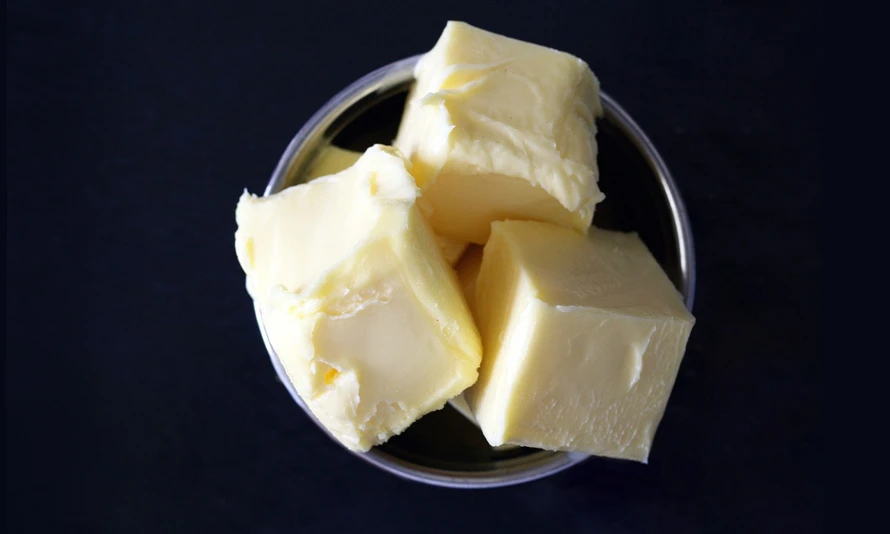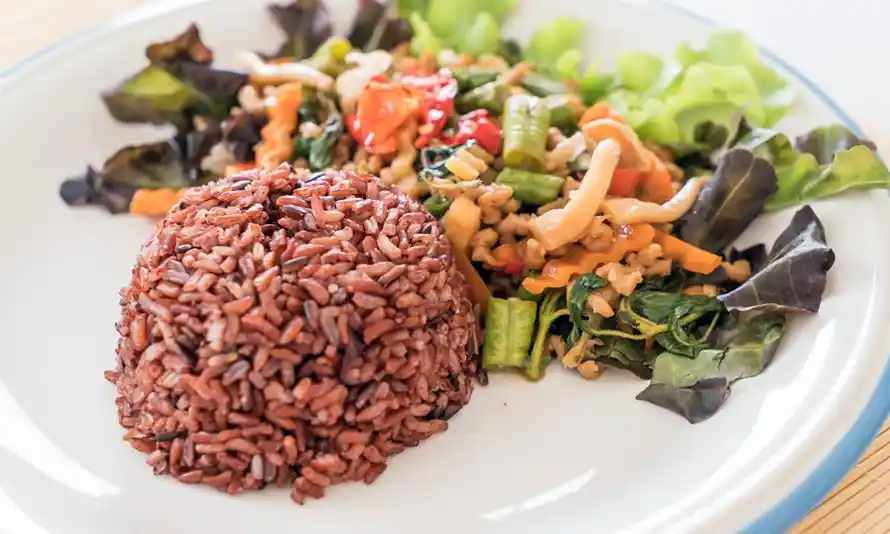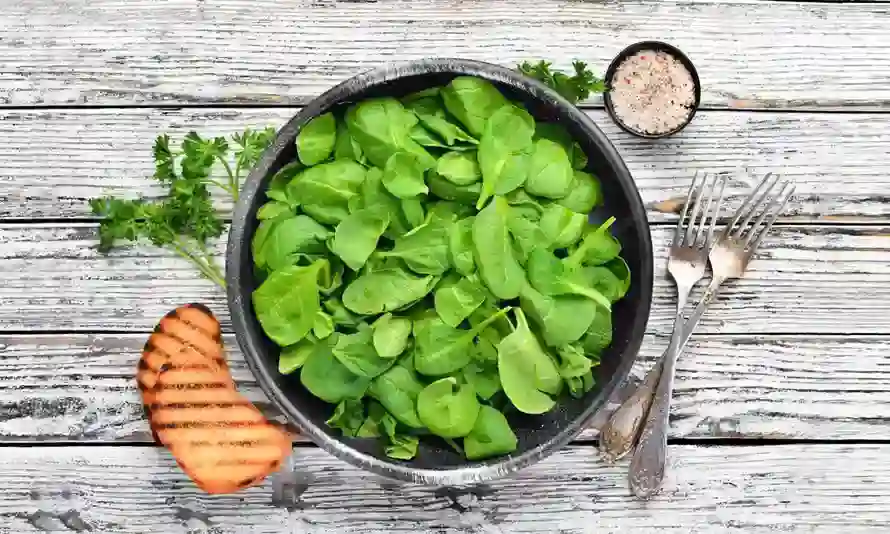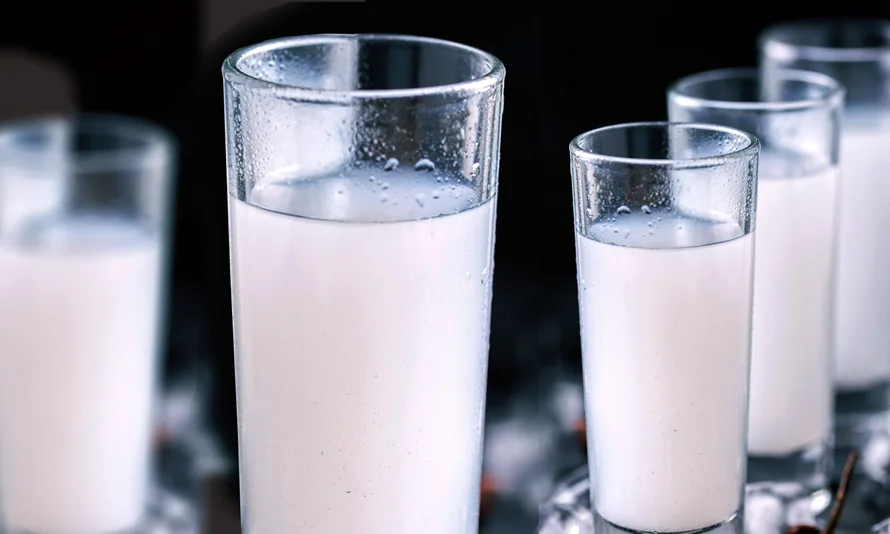Dive into the world of tea with this comprehensive guide, exploring True Tea and Herbal Tea varieties, their health benefits, and cultural significance.

Tea, often celebrated as a beverage brimming with a rich history, cultural significance, and a spectrum of flavors, extends far beyond a mere hot drink. Delving into its essence uncovers a world divided into two primary categories: True Tea and Herbal Tea.
The Root Distinction Between True Tea and Herbal Tea
True Tea is derived from the camellia sinensis leaves’ treatment. Conversely, Herbal Tea, lacking camellia sinensis, derives its character from an amalgamation of diverse botanical elements, offering a versatile range of flavors and therapeutic properties.
1. True Tea
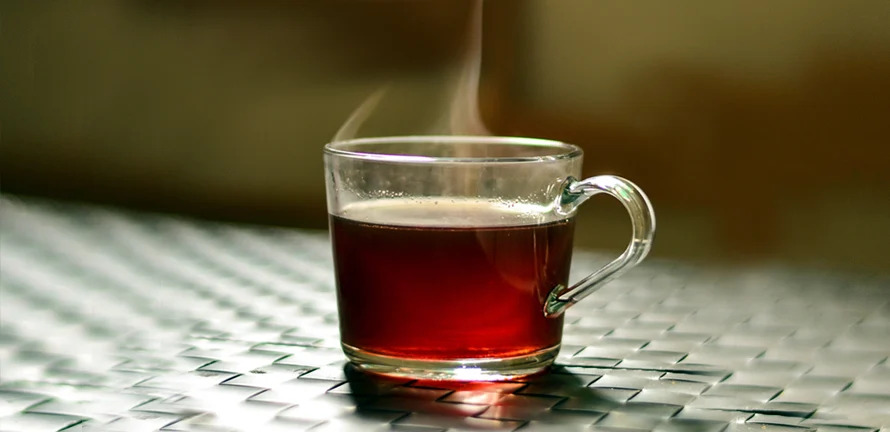
True tea comes from the leaves of the Camellia Sinensis plant and is commonly referred to as tea. There are four main types of true tea: Green tea, Black tea, White tea, and Oolong tea. These teas vary based on the level of oxidation of the Camellia Sinensis leaves:
Green Tea: Processed with heat or steam, high in flavonoids, and can help reduce bad cholesterol and lower blood pressure.
Black Tea: Dried and fermented, contains flavonoids with anti-inflammatory properties, supports healthy immune function, and can be used topically for skin rashes.
White Tea: Delicate and minimally processed, with a light body and mild flavor, rich in antioxidants, and generally low in caffeine.
Oolong Tea: Partially oxidized, high in polyphenols, and known for its anti-inflammatory properties and the presence of L-theanine.
Health Benefits of True Teas
True tea offers various health benefits owing to its rich composition of antioxidants, polyphenols, catechins, and other bioactive compounds. Some of the notable health benefits of true teas (such as green, black, white, and oolong teas) include:
- Antioxidant Properties: Polyphenols are abundant in true teas. Polyphenols act as antioxidants, combating free radicals and potentially reducing the risk of chronic diseases. True teas are rich in Catechins, particularly in green tea. Catechins like epigallocatechin gallate (EGCG) exhibit strong antioxidant effects.
- Heart Health: Green tea consumption has been associated with a decrease in LDL cholesterol levels, helping to maintain heart health. The antioxidants in tea may improve blood vessel function and reduce the risk of heart diseases.
- Weight Management: (Metabolic Boost)- Certain compounds in green tea are believed to aid in boosting metabolism, potentially contributing to weight loss. (Fat Oxidation)- Catechins in green tea may assist in fat oxidation, aiding in weight management efforts when combined with a balanced diet and exercise.
- Brain Health: True teas contain caffeine that can enhance alertness and cognitive function. L-Theanine, an amino acid, found predominantly in green tea, promotes relaxation and may improve attention and focus.
- Cancer Prevention: Some research suggests that the antioxidants in true teas may have protective effects against certain types of cancers due to their ability to neutralize free radicals.
- Dental Health: Polyphenols in tea might help inhibit the growth of bacteria associated with plaque formation, potentially reducing the risk of dental cavities and gum diseases.
- Digestive Support: Certain compounds in tea may aid digestion, alleviate digestive issues, and promote a healthy gut microbiome.
- Anti-inflammatory Effects: Black and green teas have compounds that possess anti-inflammatory properties, potentially aiding in managing inflammation-related conditions.
- Bone Health: Some studies have suggested that regular tea consumption might contribute to improving bone mineral density and reducing the risk of osteoporosis.
Important Consideration:
Moderation is Key: While true teas offer numerous health benefits, excessive consumption may lead to side effects, especially for those sensitive to caffeine.
Incorporating true teas into a balanced diet and lifestyle can potentially contribute positively to overall health. However, it’s essential to consult a healthcare professional for personalized advice regarding specific health conditions or concerns before making significant changes to your diet or lifestyle.
2. Herbal Tea (Tisane)
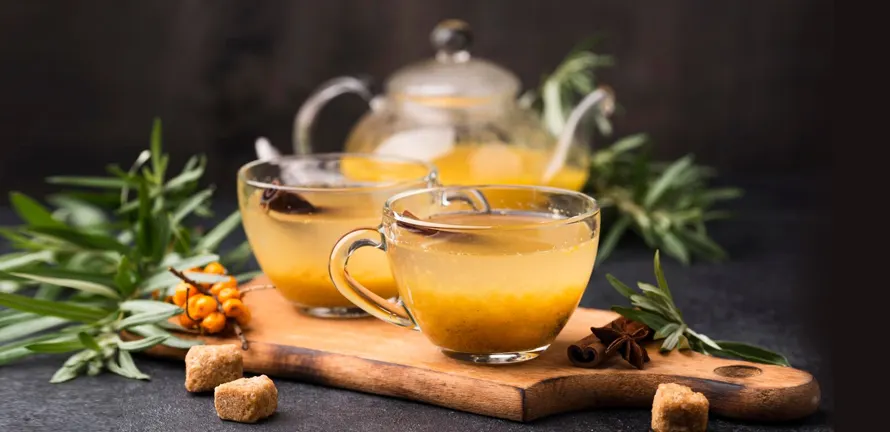
Herbal teas are not made from the Camellia Sinensis plant. Instead, they are a blend of various spices, flowers, bark, leaves, and other edible parts of non-tea plants. They are caffeine-free and offer various health benefits, depending on the ingredients used.
Variety of Flavors: Herbal teas offer a wide range of flavors, from floral to fruity, catering to diverse taste preferences.
Health Benefits of Herbal Teas
They offer an array of health benefits owing to the diverse mix of natural compounds present in the ingredients used. Some of the common health benefits associated with herbal teas include:
- Antioxidant Properties: (Polyphenols and Flavonoids)- Herbs used in herbal teas contain antioxidants that combat oxidative stress and help reduce cell damage caused by free radicals.
- Stress Reduction and Relaxation: (Calming Effects)- Certain herbal teas, such as chamomile, lavender, and valerian root, contain compounds that have soothing properties, aiding in relaxation and potentially reducing stress and anxiety.
- Digestive Health: (Alleviating Digestive Issues)- Herbal teas like peppermint, ginger, fennel, and chamomile can help ease digestive discomfort, reduce bloating, and alleviate symptoms of indigestion or nausea.
- Boosting Immunity: (Antibacterial and Antiviral Properties)- Some herbal teas, such as echinacea or elderberry, are believed to have immune-boosting effects, potentially aiding in fighting off infections and cold symptoms.
- Sleep Promotion: Herbs like valerian root, chamomile, passionflower, and lemon balm are known for their calming effects, promoting better sleep and aiding in managing insomnia.
- Anti-inflammatory Effects: (Reduced Inflammation)- Certain herbal teas, including turmeric, ginger, and cinnamon, contain compounds that possess anti-inflammatory properties, potentially aiding in reducing inflammation in the body.
- Respiratory Health: (Relief from Respiratory Issues)- Herbs like licorice root, thyme, and eucalyptus are often used in herbal teas and are believed to have benefits for respiratory health, potentially aiding in managing coughs or congestion.
- Support for Menstrual Health: (Menstrual Symptom Relief)- Herbal teas like raspberry leaf, ginger, and peppermint may help alleviate menstrual cramps and discomfort associated with menstruation.
- Weight Loss Aid: Certain herbal teas (e.g., those with ginger, cinnamon, or turmeric) can boost metabolism, aiding in weight loss when combined with a healthy lifestyle.
Important Considerations:
Natural Remedies: While herbal teas offer potential health benefits, their effects can vary, and some may interact with medications or cause adverse effects in certain individuals.
Individual Sensitivities: People with specific allergies or health conditions should consult a healthcare professional before consuming herbal teas regularly.
Incorporating herbal teas into a balanced diet can complement overall wellness. However, it’s essential to use them judiciously and seek guidance from a healthcare provider, especially if you have existing health conditions, are pregnant, or are taking medications that might interact with herbal compounds.
Why Herbal Tea Is Favored
Caffeine-Free: Ideal for those seeking a hot beverage without caffeine, suitable for consumption multiple times a day.
Medicinal Properties: Herbal teas aid in digestion, weight loss, nausea, inflammation, stress relief, and immunity improvement.
Rich in Antioxidants: Presence of polyphenols in herbal teas helps combat free radicals, preventing major illnesses and supporting overall health.
Flavor Variety: Herbal teas offer a myriad of flavors, from floral to fruity, catering to diverse preferences.
Types of Tea: A Comprehensive Guide
There’s a vast array of tea types, each categorized by its unique characteristics:
- Black Tea: Commonly known, robust flavor, and high caffeine content. It is a true tea variety. Examples: English Breakfast, Darjeeling.
- Green Tea: Lighter in taste, lower caffeine, and high antioxidant content. It is a true tea variety. Examples: Sencha, Matcha.
- White Tea: Delicate, minimally processed, mild flavor, low caffeine. It is a true tea variety. Examples: Silver Needle, White Peony.
- Oolong Tea: Partially oxidized, range from light to bold, multiple infusions. It is a true tea variety. Examples: Tie Guan Yin, Da Hong Pao.
- Pu-erh Tea: Aged and fermented, rich, earthy taste, caffeine content similar to black tea. It is a true tea variety.
- Purple Tea: Newer variety, light body, mellow flavor, low caffeine, high in antioxidants. It is a true tea variety.
- Matcha: Finely ground powdered green tea with a smooth, rich flavor. It is a true tea variety.
- Mate Tea: From South America, caffeine-containing, consumed from a hollow gourd. It is neither a true tea nor an herbal tea.
- Turmeric Tea: Turmeric tea, also known as golden milk or turmeric latte, is an herbal tea made by steeping turmeric, a bright yellow-orange spice derived from the Curcuma longa plant, in hot water or milk.
- Rooibos Tea: From South Africa, caffeine-free, full-bodied, naturally sweet. It is an herbal tea variety.
- Indian Chai Tea: Indian chai tea, often simply referred to as “chai,” is a beloved and traditional beverage originating from India. It’s a blend made by brewing black tea leaves with a combination of aromatic spices and herbs. The key components typically include black tea, milk, spices like cardamom, cinnamon, cloves, and ginger, along with sweeteners such as sugar or honey.
The understanding of these tea categories helps in appreciating the diverse world of tea, considering factors like varietals, growing conditions, and processing methods.
This comprehensive guide to tea types aims to simplify the complexities for both beginners and experienced tea enthusiasts, allowing exploration and appreciation of various single-origin teas and blends!
The spectrum of teas, whether True or Herbal, paints a vivid canvas of flavor, tradition, and wellness. Each sip unravels a unique narrative, a blend of history and nature’s bounty, awaiting exploration.
Thus, the choice between True Tea and Herbal Tea transcends mere preference; it’s a gateway to holistic wellness, a sensory journey inviting one to embrace the richness of both worlds.
In essence, within a steaming cup of tea lies not just a drink but an elixir, an amalgamation of botanical wonders, offering solace, rejuvenation, and a celebration of nature’s diversity.
Hi…Just have a look at this also!



